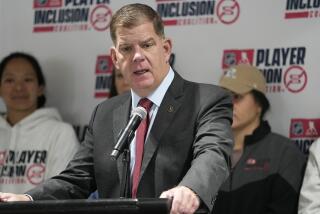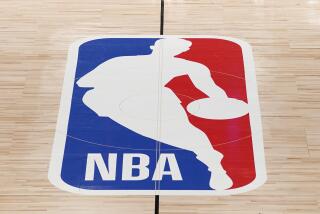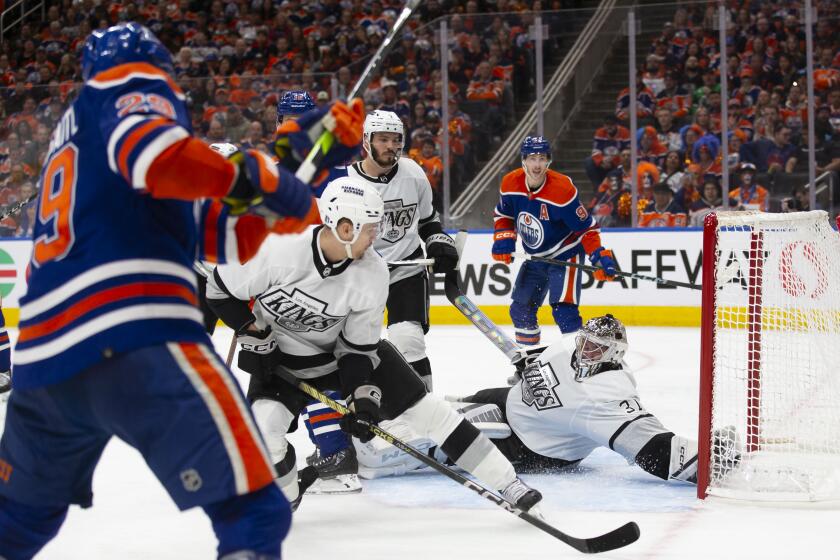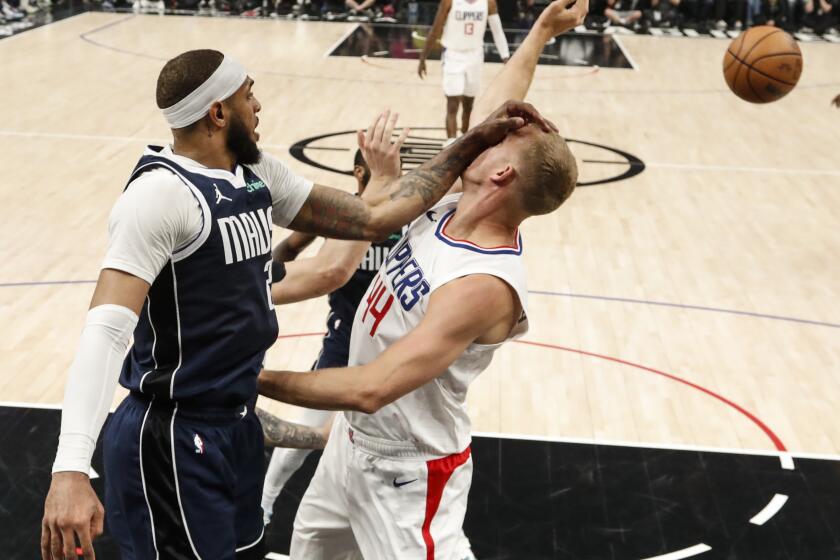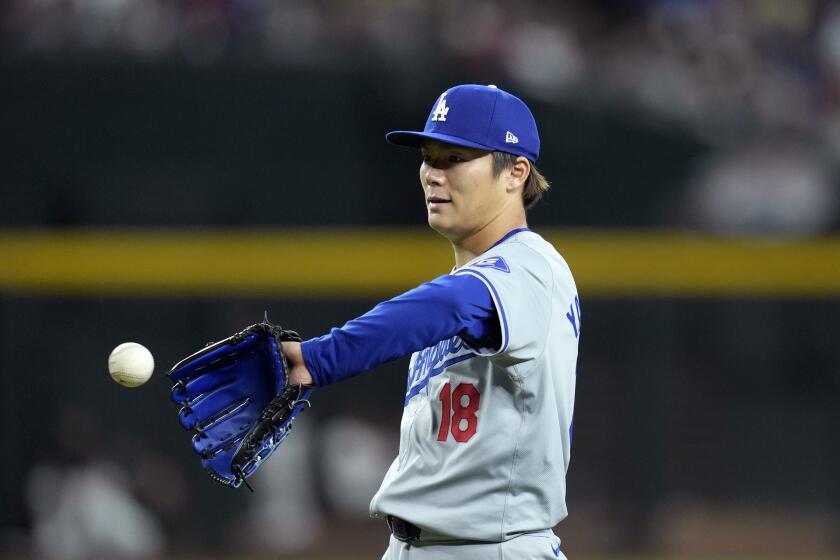Mediator joins NHL talks; NHLPA doesn’t file disclaimer of interest
Facing a firm deadline to forge a new collective bargaining agreement in time to start a 48-game season on Jan. 19 or risk losing another season to labor strife, representatives of the NHL and the players’ association invited a federal mediator to rejoin them Wednesday for negotiations that went late into the night at the league’s Manhattan offices.
Scot Beckenbaugh of the Federal Mediation and Conciliation Service, who has mediated talks twice before, was present when the sides met past 9 p.m. Pacific time. They said Beckenbaugh urged them to meet again Thursday.
“As long as the process continues, I am hopeful,” NHL Commissioner Gary Bettman told reporters in New York.
The NHLPA did not invoke its members’ authorization to file a disclaimer of interest, a maneuver that would dissolve the union and allow players to file antitrust lawsuits against the league.
The National Basketball Players’ Assn. followed that strategy a year ago in its dispute with the NBA, but the sides reached agreement soon after the filing.
The NHLPA had until 9 p.m. Pacific time to make its decision on filing the disclaimer. It can vote again and file the disclaimer if talks go sour.
Donald Fehr, executive director of the NHLPA, would not comment on the disclaimer maneuver but said he expected to continue bargaining. “The parties moved closer together on some issues. There is still a ways to go if an agreement can be reached,” he said.
Earlier Wednesday, an NHLPA delegation had given NHL executives a counterproposal to the league’s most recent offer. They met for an hour before breaking for internal discussions and reconvened Wednesday night.
The pace of the negotiations has increased since NHL Commissioner Gary Bettman set deadlines of Jan. 12 to open training camps and Jan. 19 to open the season when he sent the NHLPA a 288-page proposal last Thursday. The union responded to that and the league responded in turn, making progress on some issues but still finding enough differences to keep them apart.
Different provisions of each proposal have created hurdles during the process. However, the latest sticking points are said to be on the level the salary cap would be set for the 2013-14 season and on the league’s funding of and liability for a pension plan for players.
If the 2012-13 season is played, the salary cap will be set at a prorated portion of the originally agreed-upon $70.2-million figure. The NHL has proposed the cap be set at $60 million for the 2013-14 season, but that would punish clubs that have budgeted well and have many players already under contract. The NHLPA has reportedly proposed a cap as high as $67 million, which might cause friction with owners who want to reduce their expenses.
The sides have agreed on such major issues as a 50-50 split of hockey-related revenues and a six-year maximum length for new contracts, with a seven-year exception for teams to re-sign their free agents.
The NHL lost the 2004-05 season to a labor dispute and can ill afford to lose another. A labor dispute in 1994 led to a 48-game, intraconference schedule, a format that would likely be repeated if a new collective bargaining agreement is reached in time to meet the league’s deadline. The NHL locked players out Sept. 15.
twitter.com/helenenothelen
More to Read
Get our high school sports newsletter
Prep Rally is devoted to the SoCal high school sports experience, bringing you scores, stories and a behind-the-scenes look at what makes prep sports so popular.
You may occasionally receive promotional content from the Los Angeles Times.

